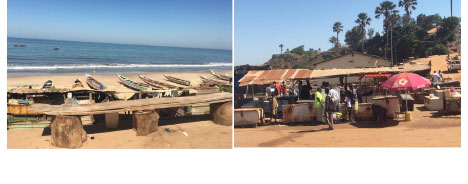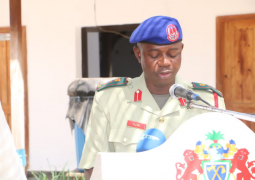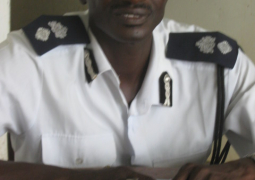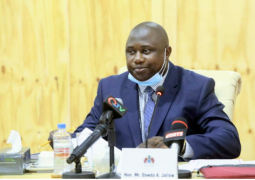
Some fishermen in Bakau who spoke to The Point recently lamented the hardship they face in fishing due to foreign ships draining fishes from Gambia waters, including even juvenile fish and eggs.
Fish farming is one of the most popular businesses in The Gambia, particularly in Bakau. But fishermen in the country claim to be finding it very difficult to fish freely on their shoreline because they are deprived by foreign vessels which use smaller nets to catch or drain the fishes from the waters of The Gambia.
Bakau fish landing site is among the busiest fish markets that used to supply fish to other communities. Today at the Bakau wharf and fishing site, one can only feel the breeze and sound of the waves with empty vessels streaked on the shoreline, as many fishermen have sold their boats and some fish mongers have deserted the wharf for lack of enough fish catch nowadays. The foreign vessels have almost drained the Bakau sea of its fish stock due to “unscrupulous” fishing practices.
Observing the sea with troubled faces, Omar Ceesay and Omar Sowe, both fishermen, said that when they recently got to the sea to farm, they came across foreign vessels and their owners who restrained them from fishing. “We always clash with big ship owners from Kafrine (Senegal) and even Italian boats - we have evidence of it, who would fish 7 to 10 miles away from the shoreline and sometimes would smash our boats causing them to capsize,” they said.
Omar Sowe revealed a picture and video of an Italian ship that has been fishing on the riverside of the Gambian sea. He pointed out one of their boats that left on Tuesday 27th December 2023 around 1 pm and came back at exactly 12:43 pm on Wednesday 28th December 2023 with a small catch and a broken vessel claiming it was caused by a foreign ship. “Sometimes at night they would come around to fish, with their lights off, so that we would not notice that they are fishing and if we happen to clash with them, they would always tell us that the river is not owned by us and we have no right to stop them since it has been sold out.”
Sowe calls on the government to take a step on the matter to restrict foreign vessels from fishing in the Gambia river because they are causing harm to the river including consumers, as they do not discriminate in their fishing. He says the foreign net they use for fishing catches both eggs and big fish including the juvenile ones, which they throw back to sea and sell the big ones outside the country.
Waiting on boats to land, Mariama Njie, a fish monger for more than fifteen years, likened fetching a bucket of fish to be as expensive as building a house. “I buy a basket of fish for D10,500, and even to sell it at D11,000 is difficult and sometimes I have to give it out as credit to my customers because they have to sell in order to give me back my money, which takes sometimes more than a week or so before I get it,” Mariam narrates the ordeal she and others are going through.
She claimed that they wake up early morning and return late at night in the cold weather and would get nothing much or better still low sales due to fishermen being disturbed by foreign vessels, causing them sometimes to return with empty boats.
Kaddy Manneh, also a fish monger, conveyed that it had been four days since she last sold fish and that is where she makes an earning to feed her children and pay their tuition fees. “We are suffering a great deal; our fishermen are not farming much while we are not selling too, and we have to provide for our families,” she laments.
Modou Cham, a fisherman and fish monger, says he buys and resells fish. He said he would buy left over fish from the Chinese fish factory, process and dry it to produce what is known as “Gaeja”.
“I buy bonga fish for D2,500, and about 8 to D10,000 for ladyfish and tilapia, only to earn between D300 and D500 from which I buy ice cube, pay dues and pay for a cab to take it to Serekunda market to sell.”
Cham also complained about the manner at which foreign vessels are fishing from the Gambia seas and urged the Ministry of Fisheries and other stakeholders to take corrective actions or measures to remedy the situation, if not all the fish in the river would migrate, which would disastrous to the citizens.
Read Other Articles In Headlines

Col Njie: SG personnel have undergone rigorous transformation stages
Jun 16, 2022, 11:09 AM



